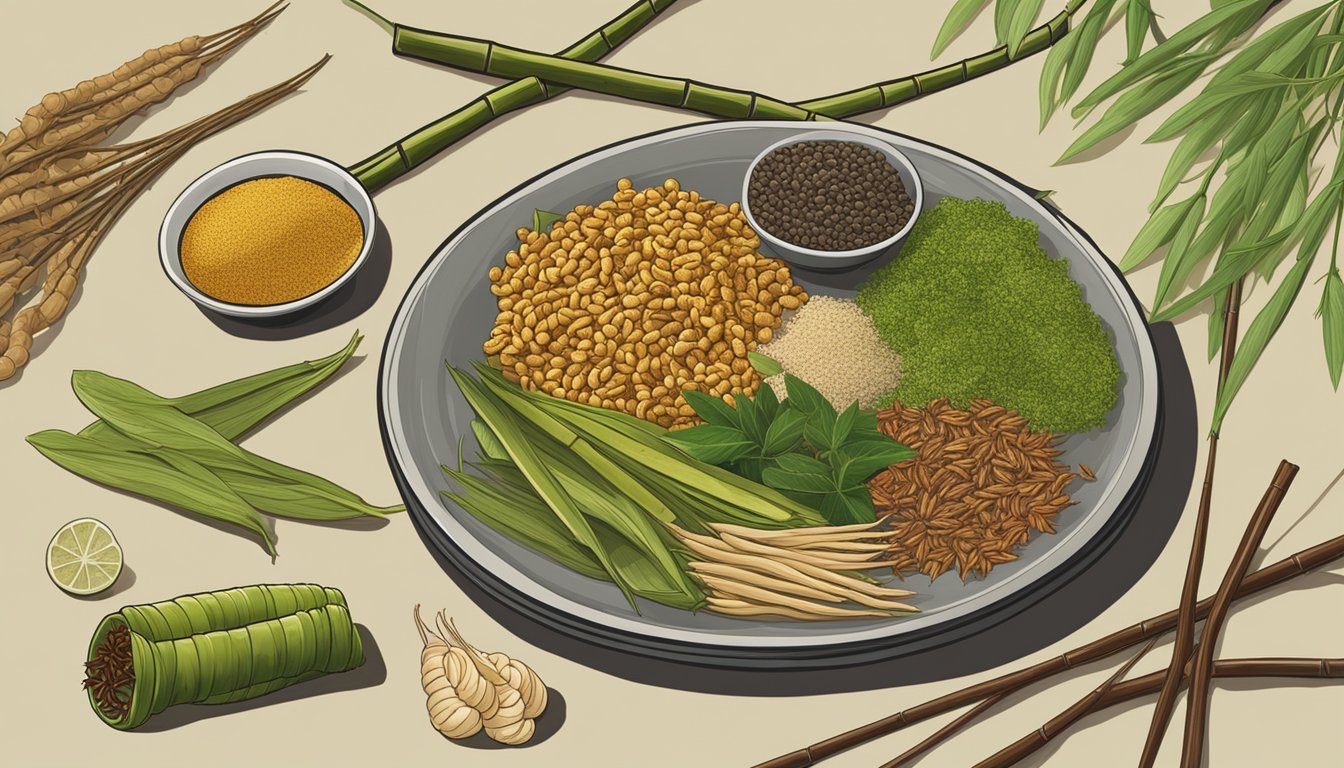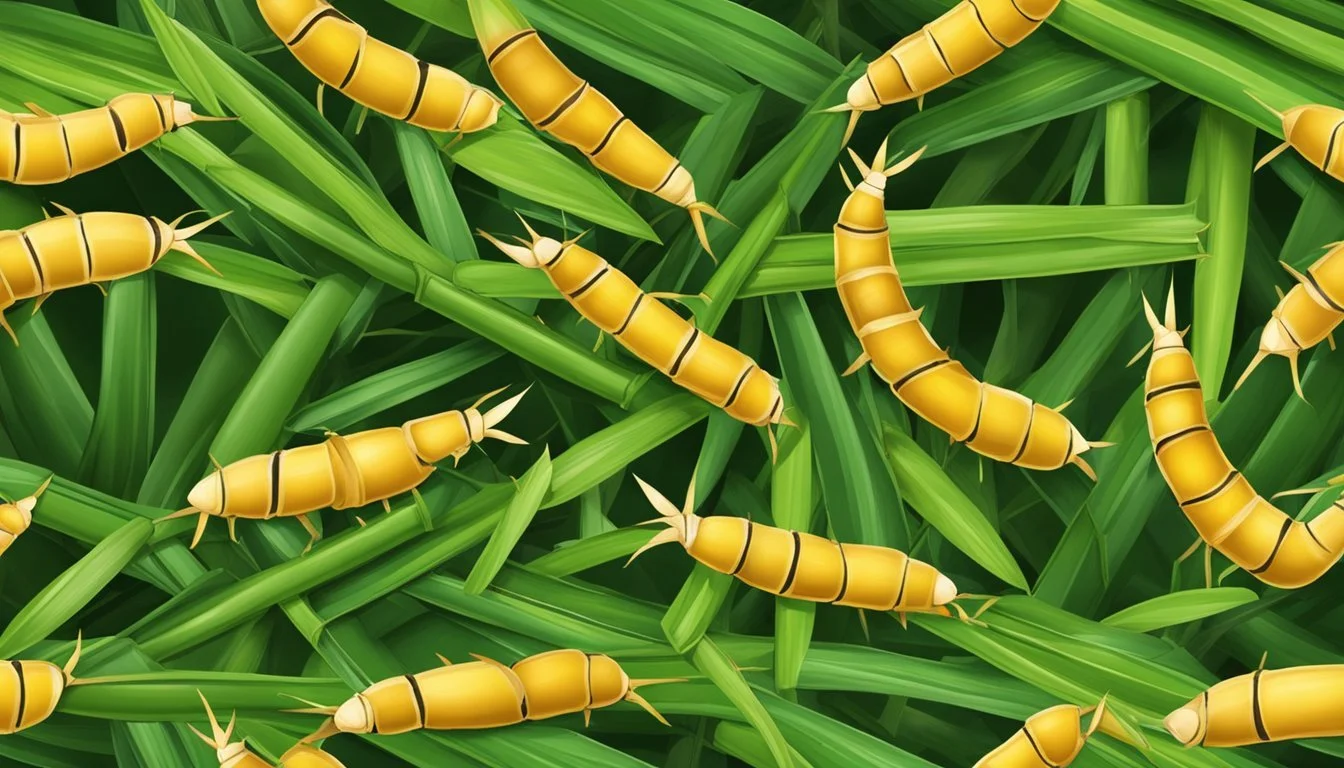Bamboo Worms Unveiling the Eco-Friendly Snack Craze in Thailand
In Thailand, a country celebrated for its rich and diverse culinary traditions, bamboo worms have emerged as a noteworthy ingredient among the plethora of distinct flavors. These larvae, harvested from the interiors of bamboo shoots, are not just a local delicacy but also a testament to sustainable eating practices. Known scientifically as Omphisa fuscidentalis, these edible insects are appreciated for their unique taste and are used in various Thai dishes, providing an innovative and nutrient-rich alternative to conventional protein sources.
Bamboo worms offer a crunchy texture and a nutty flavor that's enhanced when roasted or fried, making them a sought-after snack on the streets of Thailand. They are often sold seasoned with chili and spices, providing a savory treat that appeals to both locals and adventurous tourists alike. The popularity of bamboo worms in Thai cuisine reflects a broader acceptance and integration of insect-based dishes, serving both as a cultural experience and a leap towards more environmentally conscious food choices.
The sustainability of bamboo worms as a snack option is anchored in their low environmental impact compared to traditional livestock. Farming these insects requires significantly less land, water, and feed, thereby making them an ecologically sound alternative. Moreover, their cultivation contributes to the preservation of forested areas, specifically bamboo forests, thus maintaining biodiversity. As global interest in sustainable food sources grows, bamboo worms stand out as an example of how traditional foods can pave the way towards a more sustainable future.
Understanding Edible Insects
Insects have been a part of human diets for centuries, especially in Thailand where they are considered a delicacy. These small creatures like bamboo worms are now being recognized for their potential as a sustainable alternative source of protein with remarkable nutritional benefits.
History and Culture of Insect Consumption
In Thailand, insect consumption is a tradition that spans centuries, deeply rooted in the culture. In rural areas, insects have historically been a readily available food resource. Bamboo worms, known in Thai as rot duan, are often found in North and Northeast Thailand and are typically served fried. The practice of insect eating, or entomophagy, is not unique to Thailand; it also exists in many other parts of the world, reflecting a diverse culinary heritage where insects are appreciated for their flavors and nutritional value.
Nutritional Benefits of Bamboo Worms and Other Insects
Bamboo worms offer an impressive nutritional profile high in protein and low in carbohydrates and fats. Here's a simple comparison:
Nutritional Component
Bamboo Worms (per 100g)
Protein: 20g
Fat: 8g
Carbohydrates: 2g
Energy: 130 kcal
Beef (per 100g)
Protein: 26g
Fat: 10g
Carbohydrates: 0g
Energy: 250 kcal
Other insects such as crickets and giant water bugs also provide essential amino acids and micronutrients such as iron and zinc. They are a viable alternative source of protein, which could contribute to food security, especially given their efficient feed-to-protein conversion rates and low environmental impact.
Misconceptions and Psychological Barriers
Despite their benefits, many people outside cultures accustomed to insect consumption face psychological barriers known as the 'ick factor'. This term encapsulates the instinctive aversion many have towards insects, often fueling misconceptions about safety and palatability. In reality, when harvested and prepared correctly, insects like bamboo worms are safe to eat and can be a tasty and nutritious part of any diet. Education and exposure are key to overcoming such biases, enabling a broader acceptance of insects as food.
Bamboo Worms as a Food Source
Bamboo worms, consumed especially in Thailand, are gaining recognition as a sustainable snack. They provide a rich source of protein and are an integral part of Thai cuisine, prepared in various flavorful dishes.
Biological Overview and Lifecycle
The bamboo worm is the larval stage of a nocturnal moth that thrives in bamboo groves across Asia. Scientifically known as Omphisa fuscidentalis, the larvae feed exclusively on the soft inner parts of bamboo. The lifecycle of these worms includes egg, larva (bamboo worm), pupa, and adult moth stages, and their development is affected by the seasonal changes in their environment.
Harvesting and Seasonal Availability
The harvesting of bamboo worms generally aligns with their growth cycle and the rainy season in Asia, which usually spans from June to August. Locals carefully extract the worms from bamboo stems, ensuring a sustainable approach that limits environmental impact.
Season: Rainy (June - August)
Methods: Manual extraction
Sustainability: Efforts are made to avoid overharvesting
Preparation and Common Dishes
Bamboo worms are known for their nutty and slightly sweet flavor when cooked, making them a favorite snack food among Thais. They are usually fried until crisp and can be eaten alone or incorporated into dishes.
Popular Dishes:
Snacks: Fried bamboo worms, seasoned with chili.
Soups: Bamboo worms added to spicy and sour soups.
Curries: As a protein source in various Thai curries.
Preparation Techniques:
Cleaning: Bamboo worms are thoroughly cleaned before cooking.
Frying: Often deep-fried in oil until golden and crispy.
Seasoning: Tossed in spices such as chili to enhance flavors.
Economic and Environmental Impact
The cultivation of bamboo worms contributes significantly to both local and national economies in Thailand, playing a role in global markets as a sustainable food source. Their role in food sustainability is becoming recognized for its low carbon footprint compared to traditional livestock.
Contribution to Local and National Economy
Thailand's rural communities see bamboo worms as a source of income. The farming and sale of these insects offer financial stability for many families. Economic data highlights how:
Revenue: The edible insect sector enriches local economies through sales in traditional markets and as a delicatessen.
Livestock alternative: They serve as a sustainable and cost-effective alternative to traditional livestock farming.
Bamboo Worms in Global Markets
The global interest in bamboo worms is spurred by their nutritional profile and sustainability. As a result:
Export growth: Thailand has seen an uptick in the export of edible insects, with bamboo worms being a sought-after commodity.
Diverse use: Internationally, bamboo worms are being embraced as snack options and cooking ingredients, diversifying the market presence.
Sustainability and Carbon Footprint
Bamboo worms represent a food source with an inherently low carbon footprint, benefiting the environment by:
Resource efficiency: They require less land and water than conventional livestock.
Lower emissions: Producing fewer greenhouse gases during their lifecycle compared to cattle or pigs, bamboo worms offer a climate-friendly alternative.
Culinary Experience and Delicacies
In the bustling streets of Bangkok and quaint village markets alike, bamboo worms emerge as a Thai delicacy, celebrated for their unique texture and flavor.
Street Food and Market Vendors
Street vendors and market sellers across Thailand highlight bamboo worms as a snack epitomizing sustainability and local culinary traditions. Bangkok especially offers a sensory experience where the aroma of fried bamboo worms mingles with the city's rich tapestry of scents. They serve the worms crisp and golden, often seasoned with local spices that captivate tourists and locals alike.
Incorporation in Traditional Thai Dishes
These edible insects aren't limited to being a snack; they're also incorporated into a variety of Thai dishes. From being an added crunch to spicy bamboo worm salads to being a protein source in Kaeng Som, their culinary versatility is showcased in homes and restaurants. The delicacy provides a balance of flavor that is both intriguing to the palate and reflective of Thailand's resourceful cooking heritage.
Packaging and Accessibility in Convenience Stores
Convenience stores, including the ubiquitous 7-Eleven shops, have adapted to the growing popularity of bamboo worms by offering pre-packaged versions. These snacks are marketed for their convenience and touted as a healthier alternative to conventional snack foods. The packaging is crafted to ensure freshness while appealing to a modern audience that values both tradition and sustainability.
Industry and Entrepreneurship
Insect-based snacks, particularly those made from bamboo worms and crickets, have captured the attention of both entrepreneurs and consumers in Thailand. These novel delicacies are becoming a cornerstone in sustainable snacking and are being driven forward through innovative industry practices and strategic entrepreneurship.
Cricket Farming and Market Leaders
Smile Cricket Farm is a prominent example within the burgeoning insect snack market. Specializing in cricket farming, Smile Cricket Farm applies advanced rearing techniques to optimize both yield and quality. The farm's focus on sustainability and scalability has set an industry standard, which new entrepreneurs aim to emulate.
Branding and Marketing Strategies
Hiso Brand has emerged as a front-runner in the edible insect sector, thanks in part to its effective branding and marketing strategies. Hiso Brand makes a bold statement by embracing transparency in its product line—customers see the bamboo worms and crickets in their natural form. The brand's approach resonates as a game-changer in marketing, reshaping consumer perceptions through clarity and authenticity.
Regulations and Quality Control
Insect food products are subject to regulations by food safety authorities, including the U.N. Food and Agriculture Organization. These regulations ensure that products such as those offered by Hiso meet rigorous standards of hygiene and quality. Thorough quality control processes are therefore instrumental in maintaining consumer trust and upholding industry integrity.
Future Perspectives
Exploring the forward momentum of bamboo worms as a sustainable snack option, this section considers the advancements in insect farming methods, shifting consumer behaviors towards entomophagy, and the global support promoting insects as food.
Innovations in Insect Farming
Insect farming is witnessing technological advancements that streamline production and enhance sustainability. Refined trial-and-error methods lead to healthier insect colonies and higher yields. Innovations in packaging protect the original flavor of bamboo worms while extending shelf life and reducing waste. Utilizing space-efficient vertical farming techniques, farmers can raise substantial quantities of bamboo worms using fewer resources.
Consumer Trends and Market Expansion
Bamboo worms are gaining traction as an alternative source of protein among health-conscious consumers. The market for edible bugs is expanding as people embrace diverse diets and sustainable lifestyles. This shift is becoming evident through the increased presence of bamboo worms in supermarket aisles and gourmet dishes, offering a crunchy texture and a nutty taste that entices curious taste buds. As consumer acceptance grows, so does the potential for bamboo worms to become a game-changer in the snack industry.
Advocacy and International Development
Organizations like the U.N. are endorsing edible insects as a means to combat food insecurity. These global advocacy efforts highlight the role of insects as a key element in sustainable food systems. Development programs focus on empowering communities by providing the knowledge and tools needed to farm bamboo worms, thereby fostering economic growth and nutritional improvements in developing regions.







